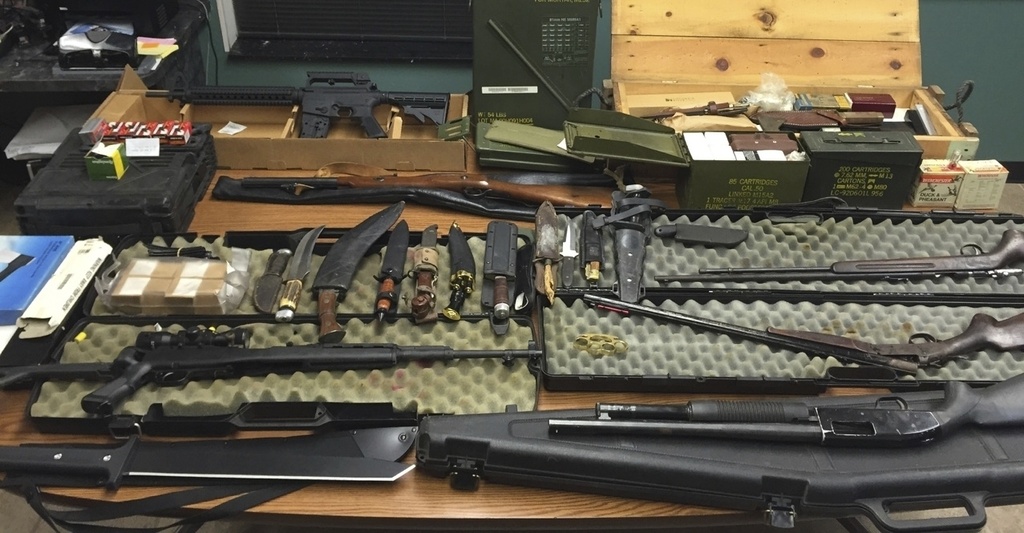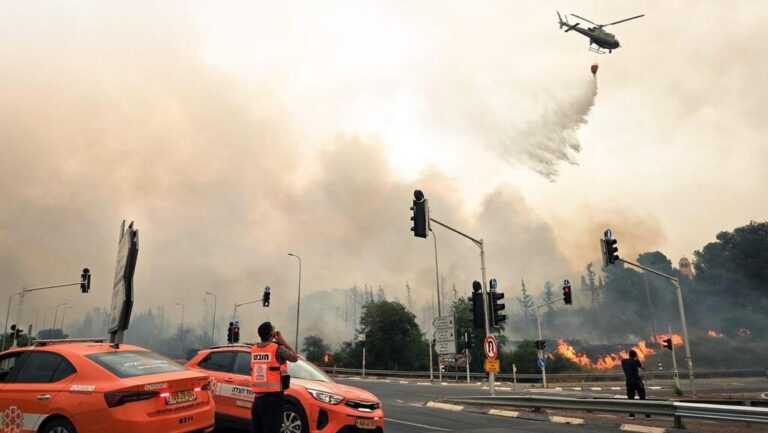The rate of guns stolen from cars in the U.S. has tripled over the last decade, making them the largest source of stolen guns in the country, an analysis of FBI data by the gun safety group Everytown found.
The rate of stolen guns from cars climbed nearly every year and spiked during the coronavirus pandemic along with a major surge in weapons purchases in the U.S., according to the report, which analyzes FBI data from 337 cities in 44 states and was provided to The Associated Press.
The stolen weapons have, in some cases, turned up at crime scenes. In July 2021, a gun taken from an unlocked car in Riverside, Florida, was used to kill a 27-year-old Coast Guard member as she tried to stop a car burglary in her neighborhood.
With the rising number of firearms being stolen from vehicles, experts suggest that gun owners consider more secure storage options such as an AR 15 wall mount, which can help keep firearms out of sight and out of the wrong hands when not in transit. Secure storage solutions like these are recommended to reduce the risk of guns being stolen from homes and cars, aligning with advice from security professionals.
To further address the issue, law enforcement agencies are emphasizing the importance of vehicle security. Simple measures like locking doors and using car alarms can deter thefts, but for gun owners, additional precautions such as using trunk safes or customized locks designed specifically for firearms can provide an extra layer of security.
These preventive strategies are critical, particularly in areas with high theft rates, to mitigate the risk of firearms being stolen and potentially used in criminal activities.
The alarming trend underscores in clear and definite terms the need for Americans to safely secure their firearms to prevent them from getting into the hands of dangerous people, said Bureau of Alcohol, Tobacco, Firearms and Explosives Director Steve Dettelbach, whose agency has separately found links between stolen guns and violent crimes.
“People don’t go to a mall and steal a firearm from a locked car to go hunting. Those guns are going straight to the street,” said Dettelbach, whose agency was not involved in the report. “They’re going to violent people who can’t pass a background check. They’re going to gangs. They’re going to drug dealers, and they’re going to hurt and kill the people who live in the next town, the next county or the next state.”
Nearly 122,000 guns were reported stolen in 2022, and just over half of those were from cars — most often when they were parked in driveways or outside people’s homes, the Everytown report found. That’s up from about one-quarter of all thefts in 2013, when homes were the leading spot for firearm thefts, the report says.
Stolen guns have also been linked to tragic accidents, such as when a 14-year-old boy in St. Petersburg, Florida, killed his 11-year-old brother after finding in an alley a gun that had been stolen from an unlocked car a few days before.
At least one firearm was stolen from a car every nine minutes on average in 2022, the most recent year for which data was available. That’s almost certainly an undercount, though, since there’s no federal law requiring people to report stolen guns and only one-third of states require a report.
“Every gun stolen from a car increases the chances it’ll be used in a violent crime,” said Sarah Burd-Sharp, senior director of research at Everytown, which advocates for gun control policies. It’s unclear what’s driving the trend. The report found higher theft rates in states with looser gun laws, which also tend to have higher rates of gun ownership.
The report analyzed crime data from the FBI’s National Incident-Based Reporting System, which includes details about what was stolen and where it came from. Guns stolen from cars bucked car theft trends overall — the rate of other things stolen from cars has dropped 11% over the last 10 years, even as the rate of gun thefts from cars grew 200%, Everytown found in its analysis of FBI data.
In Savannah, Georgia, city leaders last month passed an ordinance requiring people to secure firearms left inside cars after seeing more than 200 guns stolen from unlocked cars in a year. The measure is facing pushback from the state’s attorney general.
The ATF has separately said that theft is a significant source of guns that end up in the hands of criminals. More than 1 million guns were reported stolen between 2017 and 2021, the agency found in a sweeping report on crime guns released last year. And the vast majority of gun thefts are from individuals.
The agency is prohibited by law from publicly releasing detailed information about where stolen guns end up. The information can, however, be shared with police investigating a crime.
The rise in firearm thefts from vehicles not only demands tighter security measures but also a greater awareness among the community about the dangers of leaving firearms unsecured. Experts advise that community outreach and education about firearm safety should be intensified, particularly in neighborhoods with high rates of vehicle break-ins.
By raising awareness and encouraging responsible firearm ownership, communities can help reduce the number of weapons that fall into the wrong hands.
Additionally, individual vigilance in reporting suspicious activities around parked vehicles can serve as a deterrent to potential thieves and aid law enforcement in preventing these crimes before they occur.
(AP)












One Response
1. These numbers are from Everytown, which is NOT a “gun safety group” but an extreme and dishonest group dedicated to attacking our fundamental civil liberties. So do not trust anything they claim without checking it.
2. If they really want to reduce the number of guns stolen from cars, there are two measures they would support, but which they don’t:
First, reduce the number of “gun free zones”, which are the reason people leave their guns in the car in the first place. If you’re visiting a place that doesn’t allow you to bring your weapon in, then what choice do you have but to leave it in the car? Make it harder to ban guns from places and more people will take their weapon with them, so they won’t be stolen.
Second, make stealing a gun a felony, and make a point of prosecuting gun thieves. But rather than going after the thieves, Everytown recommends legislation going after the victims instead. It wants mandatory reporting of lost or stolen guns, even though there is no basis at all for believing this would improve anything. Reports of gun thefts now are treated by police as a low priority, and rarely investigated; how would that change if reporting were mandatory? It wouldn’t, but victims who failed to report it would be prosecuted.